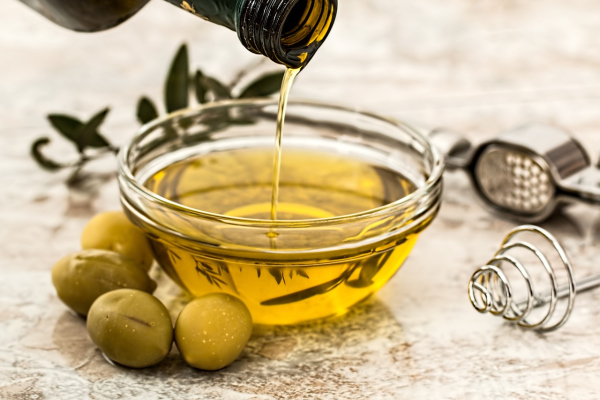 |
The Finest Harvest in Every Bottle:PDO/DOP Certified Extra Virgin Olive Oils |
 |
The Finest Harvest in Every Bottle:PDO/DOP Certified Extra Virgin Olive Oils |

Extra Virgin Olive Oil vs. Other Cooking Oils: A Comparative GuideNutritional BenefitsExtra virgin olive oil (EVOO) is rich in monounsaturated fats, antioxidants, and vitamins, making it a healthier choice compared to many other cooking oils. EVOO contains high levels of oleic acid, which has been shown to reduce inflammation and lower the risk of heart disease. It also provides antioxidants such as polyphenols, which protect against oxidative stress and chronic diseases. Other oils, such as canola and vegetable oil, lack these beneficial compounds and are often highly processed. Smoke PointsThe smoke point of an oil is the temperature at which it begins to break down and produce harmful compounds. EVOO has a moderate smoke point, around 375°F (190°C), making it suitable for sautéing and baking but not for high-heat cooking like frying. In contrast, oils like avocado oil and grapeseed oil have higher smoke points (up to 520°F or 270°C), making them better suited for high-heat applications. However, these oils may not offer the same health benefits and flavor profile as EVOO. Flavor ProfilesEVOO has a distinct, robust flavor that can enhance the taste of dishes. Its flavor can range from fruity and grassy to peppery and bitter, depending on the olive variety and production methods. In contrast, oils like canola and vegetable oil have a neutral taste, making them more versatile but less flavorful. Oils like sesame and walnut oil have unique, strong flavors but are typically used in smaller quantities due to their intensity. Environmental ImpactOlive oil production, particularly when using sustainable practices, has a lower environmental impact compared to palm oil and soybean oil, which are associated with deforestation and habitat destruction. EVOO production can support biodiversity and soil health when managed sustainably. In contrast, the production of other vegetable oils often involves monoculture farming, which can deplete soil nutrients and require significant chemical inputs. Cooking ApplicationsEVOO is versatile and can be used in a variety of cooking methods, including:
Other oils, such as coconut oil, are preferred for specific cooking applications due to their unique properties. Coconut oil, for example, is solid at room temperature and adds a distinct flavor to baked goods and stir-fries. Expert OpinionsNutritionist Dr. Lisa Brown states, "Choosing extra virgin olive oil over other oils can provide health benefits and support more sustainable agricultural practices. Its unique composition of healthy fats and antioxidants makes it a superior choice for everyday cooking." Cost ConsiderationsHigh-quality EVOO is often more expensive than other cooking oils due to the careful production methods and quality standards. However, its health benefits and rich flavor can justify the higher price. Cheaper oils like canola and vegetable oil may be more budget-friendly but lack the nutritional benefits and flavor complexity of EVOO. For tips on cooking with EVOO, read our article on Cooking with Extra Virgin Olive Oil. Learn about the health benefits in Health Benefits of Extra Virgin Olive Oil and discover how to choose the best EVOO in our Buyer’s Guide. |
Disclaimer: Some articles on this site mention various health benefits of extra virgin olive oils. Some of the benefits have been researched and some are from individual's personal experiences. In any case, these articles are not intended to act as a medical reference. If you are using, or are considering using olive oil for specific health related issues, you are advised to speak with your health care provider for advice pertaining to your situation. These articles are for educational purposes only.